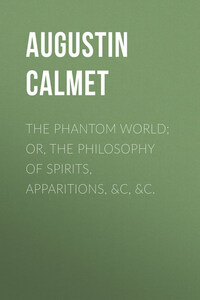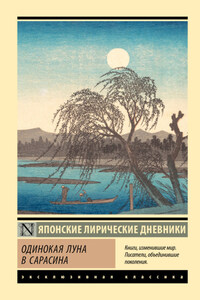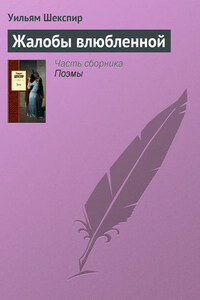TO HENRY JAMES SLACK, Esq., F.G.S
&c. &c. &c
I inscribe these volumes with your name to record a friendship which has lasted from our infancy, taint suspicion, and darkened by no shadow.
So long as eminent talents can challenge admiration, varied and extensive acquirements command respect, and unfeigned virtues ensure esteem and regard, so long will you have no common claim to them all; and none will pay the tribute more gladly than your affectionate
Friend and Cousin,
HENRY CHRISTMAS.
Sion College, March, 1850.
Among the many phases presented by human credulity, few are more interesting than those which regard the realities of the invisible world. If the opinions which have been held on this subject were written and gathered together they would form hundreds of volumes – if they were arranged and digested they would form a few, but most important. It is not merely because there is in almost every human error a substratum of truth, and that the more important the subject the more important the substratum, but because the investigation will give almost a history of human aberrations, that this otherwise unpromising topic assumes so high an interest. The superstitions of every age, for no age is free from them, will present the popular modes of thinking in an intelligible and easily accessible form, and may be taken as a means of gauging (if the expression be permitted) the philosophical and metaphysical capacities of the period. In this light, the volumes here presented to the reader will be found of great value, for they give a picture of the popular mind at a time of great interest, and furnish a clue to many difficulties in the ecclesiastical affairs of that era. In the time of Calmet, cases of demoniacal possession, and instances of returns from the world of spirits, were reputed to be of no uncommon occurrence. The church was continually called on to exert her powers of exorcism; and the instances gathered by Calmet, and related in this work, may be taken as fair specimens of the rest. It is then, first, as a storehouse of facts, or reputed facts, that Calmet compiled the work now in the reader's hands – as the foundation on which to rear what superstructure of system they pleased; and secondly, as a means of giving his own opinions, in a detached and desultory way, as the subjects came under his notice. The value of the first will consist in their evidence– and of this the reader will be as capable of judging as the compiler; that of the second will depend on their truth – and of this, too, we are as well, and in some respects better, able to judge than Calmet himself. Those accustomed to require rigid evidence will be but ill satisfied with the greater part of that which will be found in this work; simple assertion for the most part suffices – often first made long after the facts, or supposed facts, related, and not unfrequently far off from the places where they were alleged to have taken place. But these cases are often the best authenticated, for in the more modern ones there is frequently such an evident mistake in the whole nature of the case, that all the spiritual deductions made from it fall to the ground.
Not a few instances of so-called demoniacal possession are capable of being resolved into cataleptic trance, a state not unlike that produced by mesmerism, and in which many of the same phenomena seem naturally to display themselves; the well-known instance of the young servant girl, related by Coleridge, who, though ignorant and uneducated, could during her sleep-walking discourse learnedly in rabbinical Hebrew, would furnish a case in point. The circumstance of her old master having been in the habit of walking about the house at night, reading from rabbinical books aloud and in a declamatory manner; the impression made by the strange sounds upon her youthful imagination; their accurate retention by a memory, which, however, could only reproduce them in an abnormal condition – all teach us many most interesting psychological facts, which, had this young girl fallen into other hands, would have been useless in a philosophical point of view, and would have been only used to establish the doctrine of diabolical possession and ecclesiastical exorcism. We should have been told how skilled was the fallen angel in rabbinical tradition, and how wholesome a terror he entertained of the Jesuits, the Capuchins, or the Fratres Minimi, as the case might be. Not a few of the most remarkable cases of supposed modern possession are to be accounted for by involuntary or natural mesmerism. Indeed the same view seems to be taken by a popular minister of the church (Mr. Mac Niel), in our own day, viz., that mesmerism and diabolical possession are frequently identical. Our difference with him is that we should consider the cases called by the two names as all natural, and he would consider them as all supernatural. And here, to avoid misconception, or rather misinterpretation, let me at once observe, that I speak thus of








